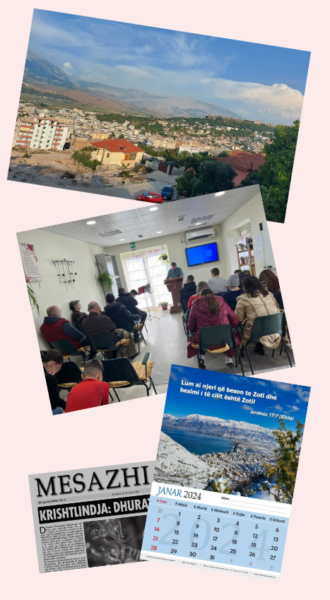AEM Background
History shows that rulers invariably want their subjects to believe what they believe and use force to achieve their goal. Rarely, however, has any government tried to suppress faith altogether. It was the bizarre policy of the Communist government of Albania, in the years following the Second World War, that every citizen had to be an atheist. Such was the concern for this situation that AEM was formed in 1986 to encourage prayer for an oppressed people denied the gospel for over two generations. However, history also tells us that things can change and never more so than when the Lord intervenes. The collapse of the Marxist regime in 1991 opened the door for change. For many Albanians this meant they could leave the darkness, poverty and devastation of a failed political and social experiment. For others it was the ‘Light of the World’ shining into young hearts who brought the hope of the gospel. Within a few years, and despite chronic problems in the nation, churches began to appear in Albanian towns. Few could have foreseen such a dramatic expansion of the Kingdom of God and AEM, with many others, sought to assist the growing body of believers in their desire to be a worshipping and witnessing community. Missionaries were able to help and increasingly found themselves working alongside national believers who took up the leadership and oversight of these multiplying churches. Problems of poverty, unemployment and massive migration persisted but with help from their Western brothers and sisters Albanian churches have become a byword for energy and zeal in mission.
Traditionally Muslim (the vast majority of the population), Orthodox or Roman Catholic, the new freedom left many unsure of what they were. Some sought meaning in the traditions of Islam while others joined the various sects as they arrived from the West. Today, in the face of materialism and superstition, it remains the aim of thousands of believers to share Christ in their communities and beyond, especially amongst the Albanian speakers of the ‘diaspora’.


 Kosova
Kosova